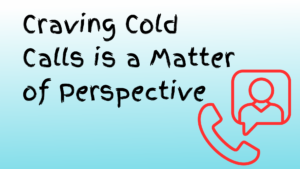
Blog
Notes:
“I think that anybody who gets into technology [has] to be willing to learn independently.”
This is what exemplifies our guest for this episode. He is a great learner. And an important piece of his excellence in learning is his willingness to unlearn some of the most critical mistakes a Sales Engineer could make in his career. This is our topic for this episode.
Jonathan Davis is Senior Solutions Engineer at Snyk, a Boston-based computer and network security company. He started his sales engineering journey somewhere completely unrelated but began what he called an “apprenticeship journey” that led him to where he is today.
We discussed the importance of developing soft skills, respecting the competition, seeing yourself as an athlete, and much more.
Key Takeaways:
- Jonathan’s college story
- The problem that prompted Jonathan to learn how to code
- How Jonathan became an SE
- Challenges Jonathan faced in the first year of working in tech
- The importance of teaching kids valuable skills as early as possible
- What attracted Jonathan to sales engineering
- Jonathan’s love of languages
- Jonathan’s experiences in his first SE job
- Why Jonathan switched from an SE job to a solutions architecture job
- Sports metaphors to explain sales engineering to ordinary people
- The mistake of focusing on features rather than benefits and business outcomes
- The mistake of not respecting the competition
- The mistake of not developing soft skills
- The mistake of not training SEs like athletes
- The mistake of not building relationships with a product team
- Why it’s critical to develop expertise
- How being an expert on your customers beats being an expert on anything else in sales engineering
Quotes:
I think that anybody who gets into technology [has] to be willing to learn independently… just being motivated to learn on your own time is, I think, a big part of being successful in a technical field. — Jonathan Davis
We go to university, and we learn everything we’re supposed to learn in university. And then we get a job and realize we don’t know anything. And we have to relearn everything all over again. — Ramzi Marjaba
I would really encourage any young people in their 20s to really focus on trying to master what Cal Newport called rare and valuable skills. I think in your 20s, it’s less important to make money. It’s more important to learn skills, and then you can try to cash that in right later in your career. — Jonathan Davis
A lot of times, SEs as engineers, we’re technologists, we’re very excited about technology, we’re very excited about features. But the business person, first of all, they’re usually a lot more focused on specific business outcomes. They might be less interested in the technical side. And there are also a lot of vendors that they’ve seen. And so even though, to you, your features are the coolest thing ever, to them, you’re kind of just another vendor. — Jonathan Davis
Some of the more effective demos I’ve done have been shorter and just laser-focused on what the customer wants to actually see, as opposed to here’s all the cool stuff. — Jonathan Davis
We should be falling in love with the problem. If we do that, then when we talk to the customers about something cool, we can tie it to their problem, which is usually a business problem. — Ramzi Marjaba
It’s really critical, especially if you’re in a competitive situation, to understand all the other vendors: understand where they’re weak, understand where they’re strong. And then, of course, you want to try to guide the pilot to your strengths or your weaknesses. You want to plant doubts about the competitors’ weaknesses, but you can’t do any of that if you think that you’re amazing and that nobody else is in the category that you’re in. — Jonathan Davis
Sometimes in a competitive highlight, it’s not necessarily the best product that wins. Sometimes it’s the best salespeople. — Jonathan Davis
It’s so much harder to debug humans than it is to debug machines and code. — Ramzi Marjaba
Another thing you can do to help differentiate yourself is be a human, connect with the customer, [and] have a relationship with them outside of work. It makes a difference. — Jonathan Davis
When people start trying to justify instead of trying to learn, you already lost that deal. — Ramzi Marjaba
Finding ways to incorporate deliberate practice into like a white-collar job, even if it’s just a little bit is going to be a big differentiator. — Jonathan Davis
Most SEs don’t practice. They practice live in front of the customers, which is like athletes practicing during a game. — Ramzi Marjaba
Documentations will always tell you how, but will never tell you why. — Ramzi Marjaba
Generalist SEs, the thing they should have deep knowledge of is their customers. If an SE can have a deep knowledge of their customer and the customer base, they’re hard to replace. — Ramzi Marjaba
You want to be able to teach the customer, and you can’t teach the customer if you don’t have deep knowledge of their domain. And the customer is usually in domain expert. — Jonathan Davis
Links from the show:
- Connect with Jonathan Davis on LinkedIn
- Outliers by Malcolm Gladwell
- The Four Disciplines of Execution by Chris McChesney, Sean Covey, and Jim Huling
- The Web Application Hacker’s Handbook by Dafydd Stuttard and Marcus Pinto
If you enjoyed this podcast, please support the show by dropping a review or rating on iTunes – https://podcasts.apple.com/us/podcast/we-sales-engineers-resource-for-sales-engineers-by/id1378292171



